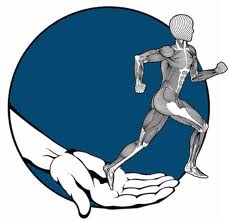
Dr. Rehab
Los Angeles, CA
Female, 31
I'm a practicing PT with a Doctorate for the past 4 years now. Although it may not seem like a long time, I have gained extensive knowledge and experience in various PT settings. I've worked anywhere from outpatient therapy, home health, aquatic therapy, inpatient rehab, and private clients. I now also instruct on an online prep course for graduates seeking to pass their National Board Examination. PT is a very rewarding job, but can also SUCK, which explains my quest to find the ideal situation
Hmmm, I'm not sure if I'd consider PT a lucrative industry. It's no secret that I think insurance companies are making things difficult for our profession, so our salaries reflect that struggle. PT is also a pretty physical job where getting burned out early is not uncommon. In my earlier post regarding PT emerging as one of the best paying jobs of the future, I think it would be more appropriate if it was about job security. While in school, there seemed to be a general consensus that we weren't doing this job 'for the money', as they say. My student loans from getting my Doctorate were also astronomical. So I guess from my viewpoint, it's not quite lucrative. But I'm sure there are others out there who would disagree. Therefore, I do think most people go into PT because they're passionate about it. Most say they chose PT so they don't have to have a desk job in a cubicle, like being physically active, like working with people, and genuinely want to make a difference in other people's lives. It can, at times, get physically tiring and repetitive. But if you have a passion for PT, it'll all be worth it in the end!
I'm not going to lie. When a patient doesn't show their commitment to their rehab, it's tough to stay motivated and positive myself. It can be very easy to get in a rut and start thinking, "well if they don't care, why should I?" But this is really the time to just suck it up and help that patient no matter what. If a patient shows they are trying, then I will try 100x harder to make sure they get the best care possible. But I definitely come across those that truly don't care or get the point of what we are doing. Again, it's a struggle that many therapists face and those frustrations are just part of the job. It's hard to please everyone and we can't fix everything or everyone. At the end of the day, if I can say I did my best, then I did my job well and be proud of it.
The short answer is No. However, I've been told stories of patient's given a certain prognosis by their Physician and beating all odds. It seems a much more common story with spinal cord injury patients or those with progressive disorders like Multiple Sclerosis or Parkinson's Disease. From my experience, I've only had those select few patients who I initially thought wouldn't achieve a higher functional level than they actually did. And this largely had to do with their attitude about their injury, their motivation and level of commitment. I've had some who had initially didn't seem to care much about their rehab, but turned things around dramatically by the end of our time together. I'd like to think it was all because of my PT skills and awesome personality, but credit should always be given to the one actually taking part in improving their physical health. As I've mentioned before in previous posts, the mind is a powerful thing and the human will is undeniable. Even a little hope can change things around for the better and that is what I try to encourage with all of my patients.
The saying, "your mind is a powerful thing" wasn't created out of thin air. I most definitely see a HUGE difference in someone's rehab potential based on their attitude. You also have to consider other factors when dealing with those that have poor or negative attitudes. They may be depressed, having a rough time at work, or anything else that can cause lack of motivation or enthusiasm for their treatment. As a result, they tend not to be 100% committed to their rehab program and will not see the same benefits as someone with a positive outlook. I was inspired by this year's first double amputee Olympic runner, Oscar Pistorius. I would often see quotes or sayings such as 'your only disability in life is a bad attitude' or 'you can't live a positive life with a negative mind' when stories about him came on tv. His life and journey to the olympics was probably a huge motivator for anyone who was on the road to recovery from an injury, surgery, etc. It also reminded me of a time when I met a patient with Parkinsons Disease. He mentioned he had been diagnosed for over 15 years but was doing very well. I asked what his secret was, and he replied, "I'm always happy".
Zookeeper and Animal Trainer
 Which cuddly-seeming animals are actually dangerous to be around?
Which cuddly-seeming animals are actually dangerous to be around?
iPhone & iPad Technician
 Do you think tablets are just a fad?
Do you think tablets are just a fad?
CBP Officer
 Do you catch less marijuana at the border now that it's being decriminalized in some States?
Do you catch less marijuana at the border now that it's being decriminalized in some States?
No romantic relationships for me since I was already engaged by the time I started practicing PT. Having a romantic relationship with a person that is still your patient is frowned upon, for professional reasons. To be honest, I really don't know if there are any real ethical or legal ramifications to that. I guess I didn't pay much attention to the rule book about this issue. However, I do know of colleagues that are now in serious relationships or are even married to their former patients. I have developed friendships with many of my former patients/clients over the years that I still keep in touch with. PT really is a profession where you can get to know a person rather quickly in a short amount of time. It has been great for networking and also benefiting from their services. I've enjoyed the perks of legal consultation, haircuts, getting into clubs, attending movie premieres, and many more. Even if you don't become friends, many PT's will often get gifts or other small tokens of appreciation for all the time spent together. Another reason why PT can be so rewarding and satisfying :).
Yes! That's a very common back issue and can be an 'easy' fix depending on how you hurt yourself, and how well we can identify your biomechanical faults with functional activities. No one will know if you need surgery until you've been seen by an orthopaedic surgeon and had an MRI done. But before you go that route, I'd suggest you see a PT first. Since it has been a 1.5 years, your condition is now chronic, which is harder to treat than an acute condition. I wouldn't quite say you screwed yourself, but had you gone at the onset of your injury, you could have been pain-free that past 1.5 years. Now you body has adapted to your injury and there is more to "fix", which is why I say it will be harder and longer to treat. So go see a PT...soon :).
There are a few that come to mind - Instructor/Professor, researcher, and hospital administrator. This is a tough question for me as it's hard to do anything else besides clinical work as a PT, since that is pretty much what we were trained in school to be. Those jobs I mentioned above are positions you have to work up to as they take years of experience, and are still PT related. If you are asking about non-PT related jobs, I suppose you can be something along the lines of a wellness coach, pilates/yoga instructor, private personal trainer specializing in injury prevention, etc. But all those jobs still can be somewhat related to PT. I have heard of a few who have just decided to leave the profession completely and became realtors or web designers. I guess those people really didn't want to be a part of the health industry in any way. But this, of course, is far less common. Sorry for the minimal answer as I really don't know of many who have truly made the switch to do something else, even though they would like to.
-OR-
 Login with Facebook
Login with Facebook (max 20 characters - letters, numbers, and underscores only. Note that your username is private, and you have the option to choose an alias when asking questions or hosting a Q&A.)
(A valid e-mail address is required. Your e-mail will not be shared with anyone.)
(min 5 characters)
By checking this box, you acknowledge that you have read and agree to Jobstr.com’s Terms and Privacy Policy.
-OR-
 Register with Facebook
Register with Facebook(Don't worry: you'll be able to choose an alias when asking questions or hosting a Q&A.)